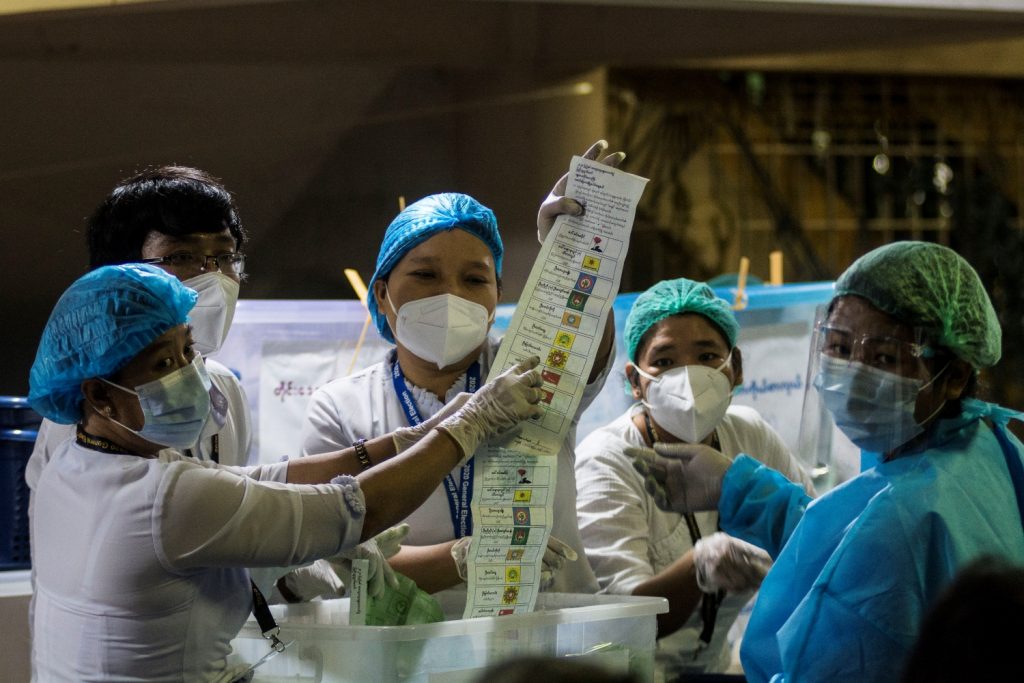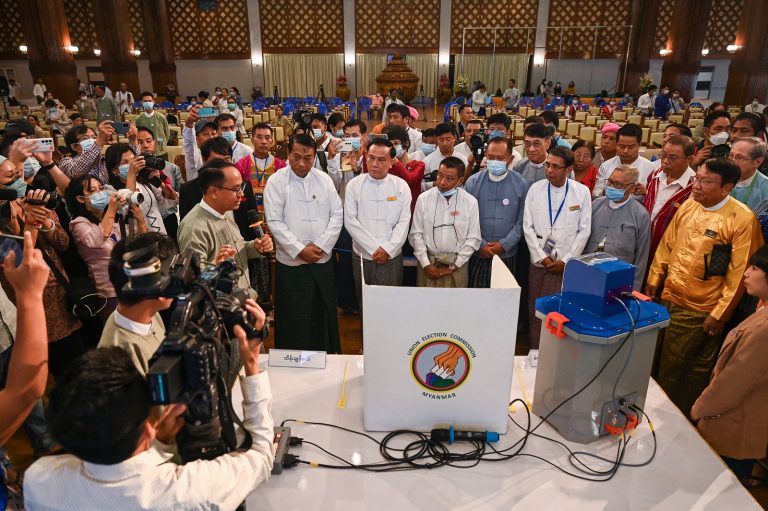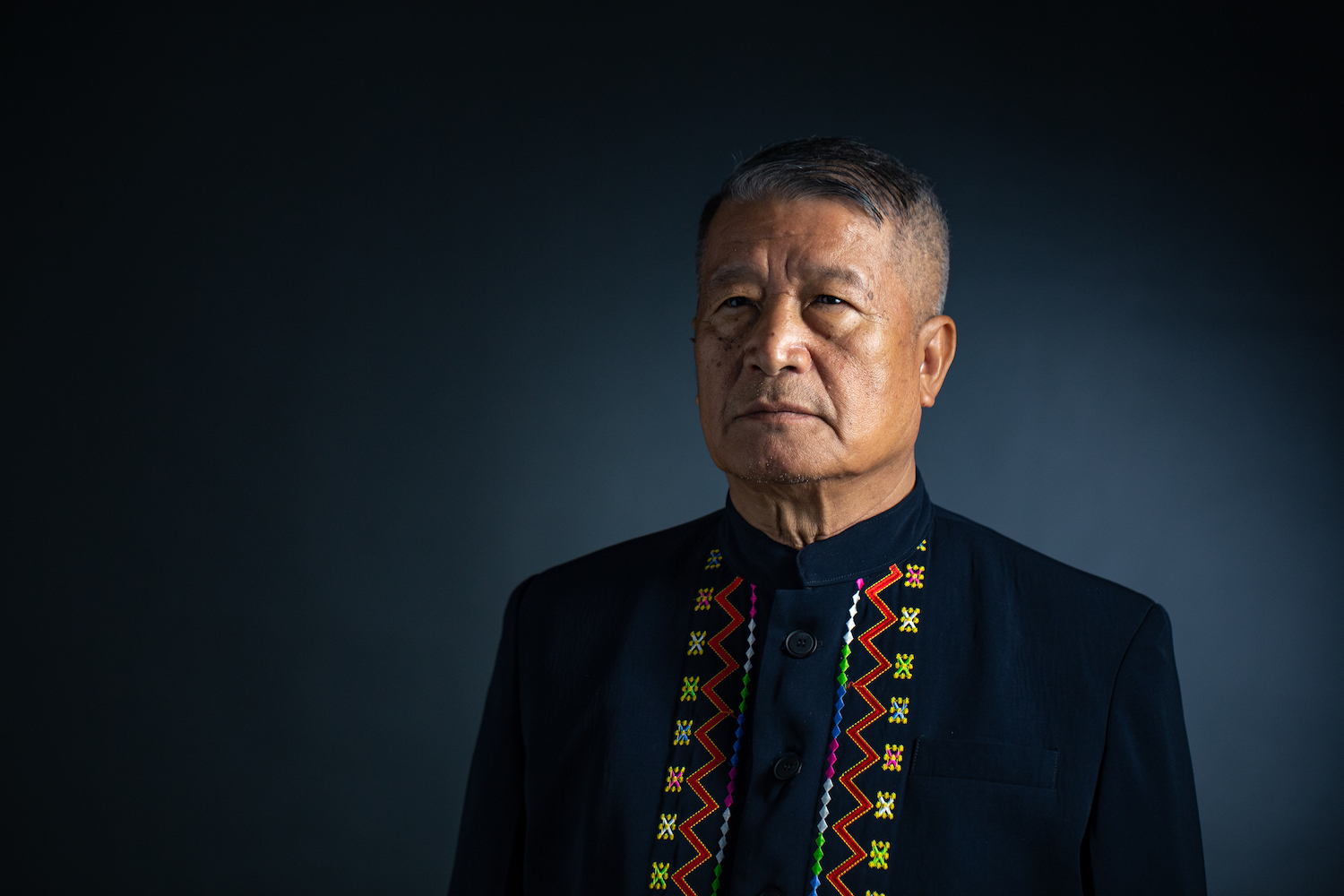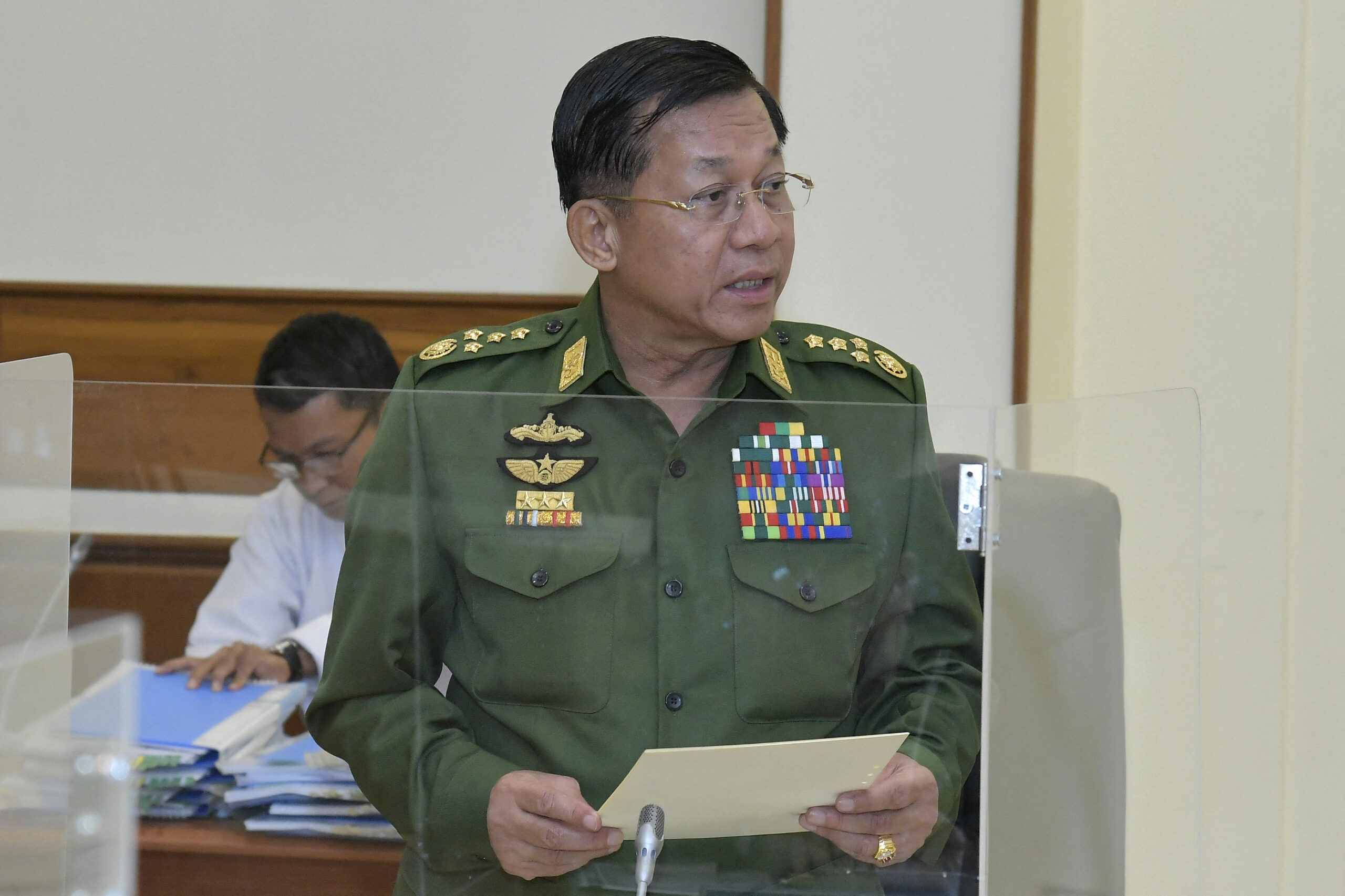The US-based election monitor found “no major irregularities” during voting and counting but criticised flaws in the legal framework that limit democracy in Myanmar.
By BEN DUNANT | FRONTIER
Election observation group the Carter Center has commended the election commission and poll workers for pulling off an orderly and largely clean vote amid the steep challenges presented by the COVID-19 pandemic.
Although it noted “no major irregularities” on election day, the United States-based group, founded by former American president Jimmy Carter, said in a statement on November 10 that discriminatory measures and defects in the legal framework carried over from the last general election continue to limit democracy in Myanmar.
It was also the critical of the decision-making of the Union Election Commission, which it said “lacked transparency and openness in some instances”, adding that the commission “did not provide public access to timely election data”.
Nevertheless, the Carter Center said the election administration had “demonstrated resilience in adjusting to the challenges posed by COVID-19” to deliver a mostly smoothly run election.
The Carter Center itself had plans for a full-sized international observer mission scuppered by the pandemic and the steep barriers that Myanmar has erected to foreigners entering the country in response, such as a commercial flight ban in place since March.
Nonetheless, the group’s deployment on Sunday of 43 observers across 234 polling stations wasn’t all that smaller than its 2015 mission, when it fielded 62 observers across 245 polling stations. Voting was observed in all states and regions besides Rakhine, Kayah and Chin states and Tanintharyi Region.
However, to observe the campaign period and electoral preparations in the months leading up to the vote, the Carter Center took the unprecedented step of hiring Myanmar nationals to fill 14 long-term observer positions, though most of them had to work remotely from Yangon and interview candidates, election officials and civil society activists online or over the phone.
The group’s observers gave positive assessments to 94 percent of polling stations they observed, and overall found staff to be well trained and provisioned with the necessary materials. Vote counting was also observed to be transparent, with party agents and citizen observers allowed to scrutinise the process with few reported restrictions.
These findings largely chime with those of Myanmar’s biggest domestic observer group, the People’s alliance for Credible Elections, whose statement on November 9 – based on a considerably larger deployment of 1,885 observers– described a “peaceful” process without “major incidents” and “no major discrepancies” during the counting process.
The overall positive assessment of election-day procedures by the Carter Center and PACE may make it harder for the Union Solidarity and Development Party to pursue claims that the vote was fraudulent. The military-aligned opposition party suffered a humiliating loss on November 8 amid another landslide win for the ruling National League for Democracy, and USDP chair U Than Htay said in a video message on November 10 that the party would “try to make things right legally”.
However, both PACE and the Carter Center found the voting process wasn’t always accessible to people with disabilities (despite a recent by-law change requiring election officials make polling stations accessible) though they assessed the scale of the problem very differently. PACE said “less than a third” of observed polling stations were accessible to wheelchair-bound voters, while the Carter Center said 64pc appeared accessible.
As to the legal shortcomings of Myanmar elections, the Carter Center noted the military’s guaranteed share of a quarter of parliamentary seats; the huge discrepancy between the number of voters in different constituencies (a phenomenon known as malapportionment), which undermines equality of the vote; the UEC’s lack of institutional independence, stemming from the fact that it is wholly appointed by the president; the inability for any aggrieved party to appeal the UEC’s decisions, which make its lack of independence an even bigger problem; and discriminatory citizenship rules that prevent members of some minority communities, notably the Rohingya, from voting or standing as candidates.
The 18-page statement also highlighted the commission’s failure to provide “transparent criteria” for the cancellation of voting in certain areas. Announced in mid-October, the cancellations disenfranchised most voters in Rakhine State, as well as smaller numbers in Shan, Kachin, Kayin, Chin and Mon states, as well as Bago Region.
The Carter Center situates this lack of transparency in a broader lack of openness that includes the refusal to publish key electoral data, such as the final number of voters and candidates.
However, the Carter Center found that local election sub-commissions where much better at outreach. The statement says 80pc of candidates and party members interviewed reported sub-commissions holding routine or ad-hoc meetings with stakeholders, and 69pc of interviewees said sub-commissions “provided sufficient and relevant information to parties and candidates”.
The Carter Center also noted some positive legal reform, despite the glaring flaws that remain in the framework. For instance, amendments to laws and by-laws enacted this year and last year required soldiers and their families to vote outside of cantonments, formalised the role of local Election Mediation Committees to resolve minor campaign violations (which the Carter Center says parties and candidates had found “effective” for “diffusing tensions” and “building consensus”), acknowledged the right of observers to be in polling stations, and provided for spoiled ballots to be replaced.
The statement also puts some of the bigger controversies of the campaign period into perspective. Although errors in the voter lists grabbed headlines, the Carter Center said “over 80pc of the 479 party and candidate representatives interviewed characterised the quality of the voter roll as good or adequate”. The exceptions were Kachin and Shan states, where 40pc and 33pc of interlocutors, respectively, assessed the voter lists as “poor”.
In addition, although the statement notes the pandemic had a “considerable impact on the visibility and intensity of campaigning”, particularly in the 22pc of townships that have been subject to government stay-at-home orders, candidates “were generally able to reach out to voters through a variety of methods” such as door-to-door canvassing, vehicle convoys and an unprecedented use of Facebook.
Underlining the adaptability of many campaigns, the Carter Center said 62.5pc of parties and candidates interviewed “reported that they themselves could campaign freely”. Meanwhile, 70pc believed that “campaign restrictions were equal for all contestants”, despite some allegations that local authorities were giving the ruling party freer rein.







